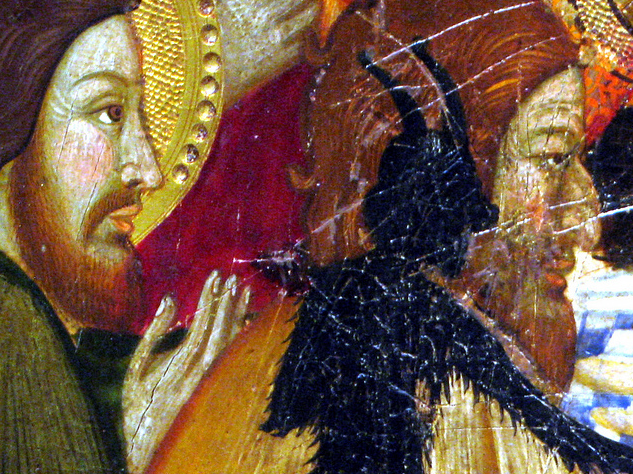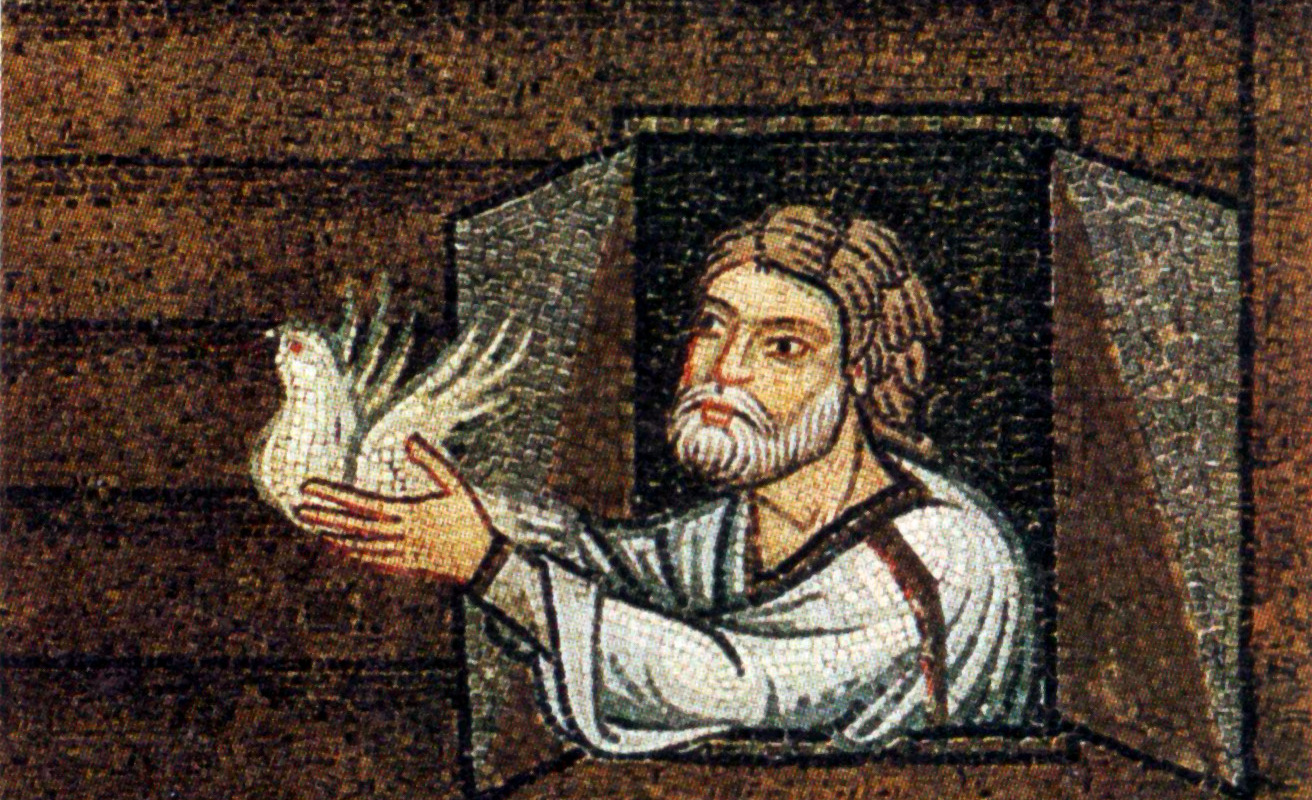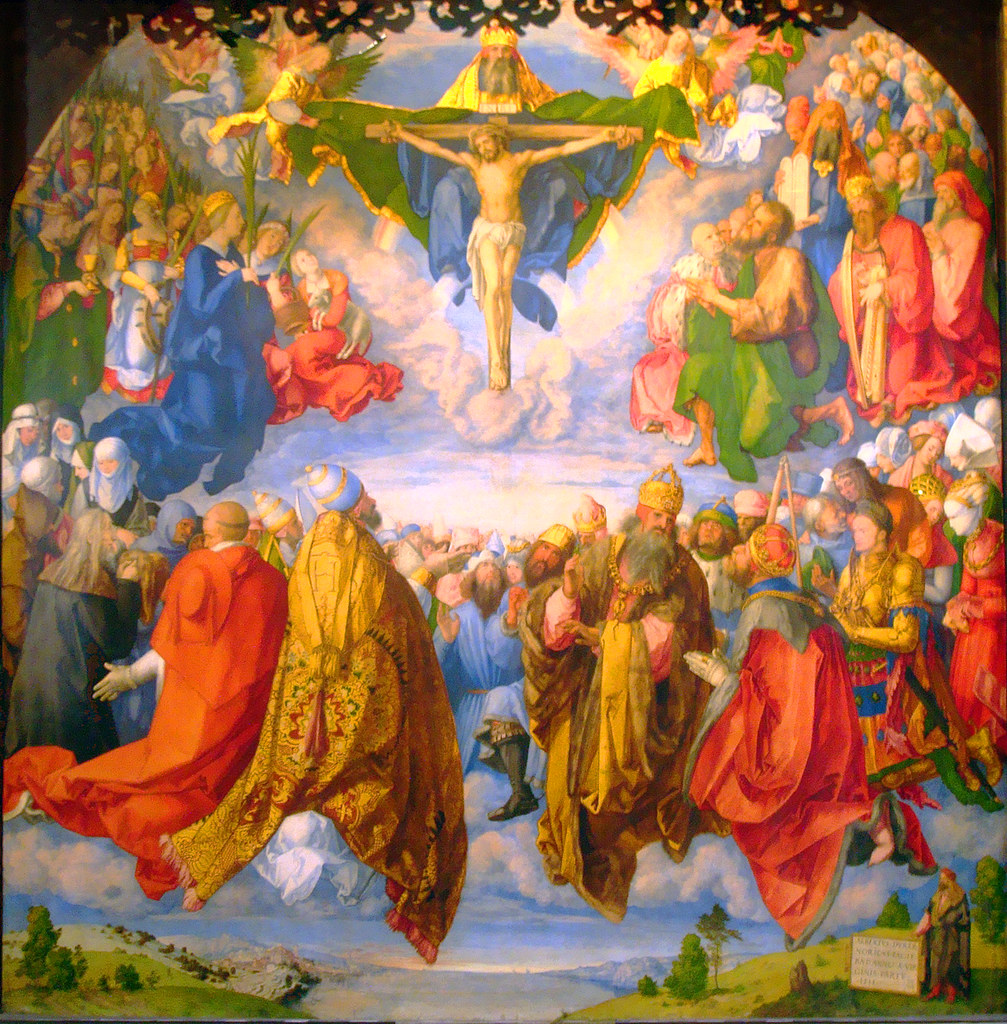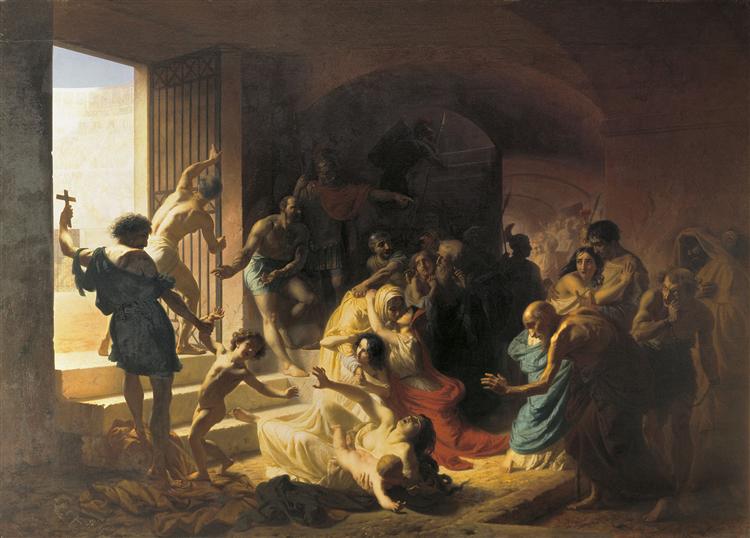
Jesus teaches Nicodemus that “unless one is born again, he cannot see the kingdom of God.” The word for “again” is perhaps better translated “from above,” although Nicodemus’ comments about going into his mother’s womb a “second time” seem to undermine the “from above” case and argue for an “again.” If you’re born “from above,” why would one’s mother’s womb be relevant. But if you’re born “again,” the comment makes sense.
Nicodemus’ words are unfortunate, insofar as they compel the “born again” interpretation, because the idea of being “born from above” is so loaded with good stuff. Well, we can get to the “born from above” interpretation despite Nicodemus, and here’s how.
Anothen, the Greek word for “from above,” or “anew,” or “from the first,” or possibly “again,” obviously has a broad enough meaning that when Nicodemus heard the word, he heard its meaning as “again” rather than what Jesus meant it as, “from above.” We have in English words with a wide variety of meanings. Think of the old kid’s joke, “I love hot dogs.” Response: “You mean you want to marry it?” Nicodemus is like the child making that joke with his, “What? Can a man enter his mother’s womb a second time?”
But if we look at Jesus’ teachings about being “born from above” against other Scripture on “birth from above,” a consistent pattern emerges on what’s going on. Of course, to be born from above is also to be born again, but the “being born again” is sort of an obvious incidental, as in. If you’re born from above after being born the first time, of course you’re born “again.”
Let’s look at those other Scriptures and the picture they paint.
(1) First, here are several passages that substantiate the “from above” interpretation:
“[B]ut the Jerusalem above is free, which is the mother of us all…. Now we, brethren, as Isaac was, are children of promise. But, as he who was born according to the flesh then persecuted him who was born according to the Spirit, even so it is now.”
“But as many as received Him, to them He gave the right to become children of God, to those who believe in His name: who were born, not of blood, nor of the will of the flesh, nor of the will of man, but of God.”
In addition to these two passages, six verse from St. John’s letters use the expression “born of God.
These passages recall what we’ve been meditating on these past weeks, that the Holy Spirit’s work is to take what belongs to Jesus – His restoration at God’s right hand – and deliver it to us by declaration. He takes what’s above and makes it an existential reality below. The vision He gives us is the “first light” of a new birth that drives away the dark veil over our hearts inherited from this world’s fallen condition.
(2) Now, let’s look at how one is born from above, or from God:
“ [U]nless one is born of water and the Spirit, he cannot enter the kingdom of God.”
“A woman, when she is in labor, has sorrow because her hour has come; but as soon as she has given birth to the child, she no longer remembers the anguish, for joy that a human being has been born into the world.”
“…having been born again, not of corruptible seed but incorruptible, through the word of God which lives and abides forever…”
Jesus’ reference to the woman in labor is interesting. He describes His crucifixion as like being a woman in labor, and it’s something the disciples were sharing in, for they were the ones sorrowing. Indeed, it’s something the whole creation shares in, as St. Paul tells it: “For we know that the whole creation groans and labors with birth pangs together until now.” In this vein St. Paul jumps back to our theme, albeit with a slightly adjusted metaphor, when he writes, “even we ourselves groan within ourselves, eagerly waiting for the adoption, the redemption of our body.”
The reference to creation is a bit of a pivot point, because as we look at the creation and how it came about, we see it emerged from the “deep” where the Holy Spirit hovered over the face of the “waters.” Well, the fall of creation – as typified by the flood – returns everything to that deep abyss. So it makes sense the Holy Spirit would draw out a “second time” from above a new creation, out of the water. And even as we are the “firstfruits” of the new creation, so do we herald the eventual restoration of the whole creation. Again from St. Paul, “[The creation] eagerly waits for the revealing of the sons of God.”
Which brings us back to Jesus’ labor pains on the cross, when He gave birth to the new creation, when water and blood and spirit exited His body and became the materials from which the new creation would be made. St. John references these three items in his lengthy discussion on being “born of God” in I John 5. Coupled with Jesus’ statement in John 3, about being born from above by water and the Spirit, and also coupled with St. Paul’s teaching on being baptized into Christ’s death, that is, in His blood, quite clearly our new birth begins in the water, at baptism, with the words “in the name of the Father and of the Son and of the Holy Spirit.” And Christ’s forgiving blood flows with that water.
It’s where the Holy Spirit, hovering over the waters, begins to draw out the new creation.
But the Word is also part of this, even as the Word was worked into the face of the waters to bring about the first creation. What is that Word? It’s the Word by which the Holy Spirit gives to us by declaration what’s going on in heaven: “In the name of the Father and of the Son and of the Holy Spirit.” The Son in restored fellowship with the Father, communicated by the Holy Spirit, causing us to become children of God, crying out “Abba Father” by the Spirit through Christ. As if we’re right there at God’s right hand!
Well of course. God has one Son, begotten from eternity. By our adoption, our being born from above, we are the body of the one Son, Jesus Christ.
(3) Finally, what does the birth from above mean for our lives?
“For whatever is born of God overcomes the world. And this is the victory that has overcome the world – our faith.”
“Beloved, let us love one another, for love is of God; and everyone who loves is born of God and knows God.”
“We know that whoever is born of God does not sin; but he who has been born of God keeps himself, and the wicked one does not touch him.”
“Whoever has been born of God does not sin, for His seed remains in him; and he cannot sin, because he has been born of God.”
“Beloved, let us love one another, for love is of God; and everyone who loves is born of God and knows God.”
“If you know that He is righteous, you know that everyone who practices righteousness is born of Him.”
“My little children, for whom I labor in birth again until Christ is formed in you.”
Clearly, love is a central theme, especially from John’s writings. But several clues in these texts teach our being born again as foundational for a life of growth into that perfect love.
There’s the expression “practicing righteousness,” that is, something we have to strive for, or to use a sports metaphor, “suit up” for. For who “practices” but he who is performing something that doesn’t come naturally. Being born from above is no guarantee of immediate holiness or perfection.
There’s the reference to the seed in us. The reference is reproductive. If the Father sires us with His seed, which is the Word of God, that seed must grow. When we’re born from above, we begin as babes.
There’s St. Paul’s reference to “laboring in birth until Christ is formed in you.” Here’s basis for the “now, but not yet” formulation we frequently see when describing Christian teaching vis a vis the eschaton. It’s why St. Paul could write Corinth and first describe them as saints, and then precede to take them to task for tolerating incest. Yes, quite a labor in birth for St. Paul!
A final comment from the texts above is from the first text cited, about the “Jerusalem which is from above.” St. Paul writes, “[B]ut the Jerusalem above is free, which is the mother of us all….”
Not only could we have some fun supporting the case for “replacement theology,” that is, the idea that the Church is the new Israel, but we can also rejoice in one final blessing of being born “from above.” It’s what St. Paul writes in the above context, “Stand fast therefore in the liberty by which Christ has made us free, and do not be entangled again with a yoke of bondage. Indeed I, Paul, say to you that if you become circumcised, Christ will profit you nothing. And I testify again to every man who becomes circumcised that he is a debtor to keep the whole law. You have become estranged from Christ, you who attempt to be justified by law; you have fallen from grace.”
Fallen indeed, fallen from those great heights of God’s grace, from above, from that position at God’s right hand, where we are lifted up by the Holy Spirit’s words of declaration, and seated with Christ. As St. Paul writes, “God, who is rich in mercy, because of His great love with which He loved us, …made us alive together with Christ (by grace you have been saved), and raised us up together, and made us sit together in the heavenly places in Christ Jesus.”






